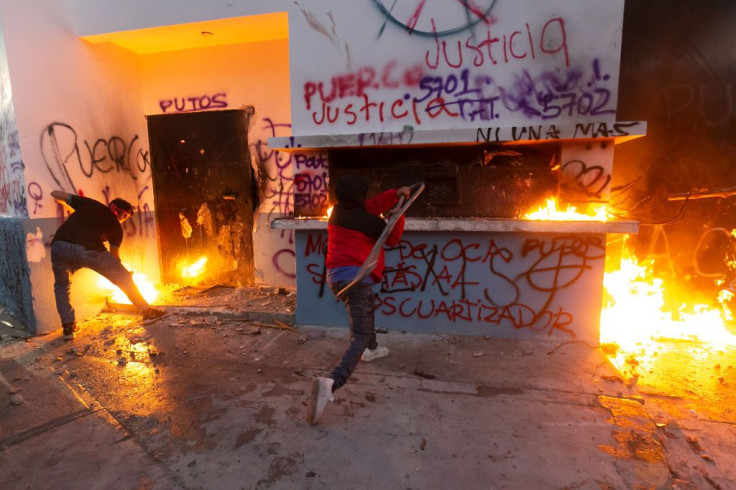Gang violence has resurfaced in Mexico as the June mid-term elections approach.
Residents said a wave of political assassinations and tens of thousands of forced disappearances has begun.
Civil society leaders and gunmen from different groups told The Guardian that state and federal security forces have been actively cooperating and even fighting alongside warring factions. Criminal gangs are also pitted against one another over the electoral field in Mexico.
"All the [criminal] groups are trying to make gains right now," a Michoacán political consultant said in the report. The aforementioned political consultant has firsthand knowledge of how organized crime and political candidates make deals.
The Jalisco New Generation cartel has expanded its footprint in the western state of Michoacán, which has seen a lot of recent combat. The Observer said the Jalisco cartel intensifies its rivalry with an alliance of local groups known as the United Cartels.
More than a thousand people have sought refuge in the United States due to it, leading to the current influx of people at the southern border.
Mexican nationals accounted for 42 percent of all border apprehensions in March, according to preliminary data from US Customs and Border Protection.
"They are leaving because they get caught in the crossfire because their homes have been destroyed, [and] because the main roads into [the area] have been carved up to stop the advance of the Jaliscos," Gregorio López, a Catholic priest, said in the report.
López has taken in refugees in the neighboring city of Apatzingán. He claims that livelihoods have become unsustainable, and that basic commodities are no longer getting through, resulting in a fresh food crisis.
The priest claimed that almost everything became more expensive. He added that the fuel price increased thrice as much as before.
More than 100 lawmakers in Mexico were assassinated shortly before election day in 2018.
CNBC said Fernando Puron, a former congressional candidate in the border city of Piedras Negras, was shot in the head from behind while taking a picture with a supporter.
Since the government first released homicide data 20 years ago, May 2018 has been regarded as one of Mexico's deadliest months. According to the data, 2,890 people were killed in a month, averaging 93 per day or four per hour.
Rafael Elias, an analyst at Exotix Capital, said politicians are especially vulnerable targets of organized crime.
This happens politicians don't express support for criminal activity in the municipalities or regions they're running to administer,
"Whomever governs next will still have to deal with a situation that Mexicans feel has gotten out of control," Elias said.

© 2025 Latin Times. All rights reserved. Do not reproduce without permission.






